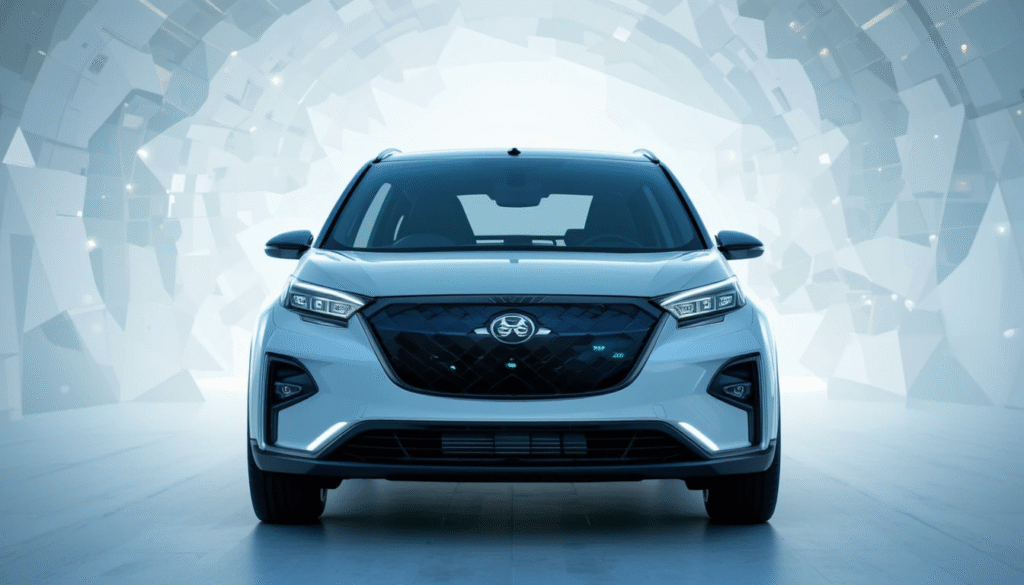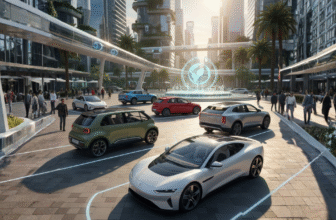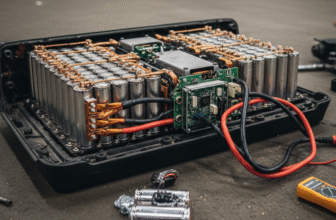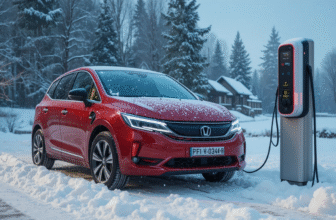Table of Contents
- The Latest Advancements in Electric Vehicle Technology
- Alleviating the Range Anxiety Syndrome
- How AI is Making EVs Smarter and Safer
- The Connected and Sustainable Future of EVs
- Practical Guidance for Embracing Electric Vehicles
- Money-Saving Tips and Myth-Busting for Future EV Owners
The Latest Advancements in Electric Vehicle Technology
The world of electric vehicles is changing incredibly fast right now, and honestly, it’s pretty exciting to watch. We’re seeing breakthrough technologies that are making EVs perform better, become more environmentally friendly, and simply more enjoyable to drive.
What’s really caught my attention lately is how much better the batteries have gotten. Car companies are pouring serious money into developing these advanced lithium-ion batteries that can store way more energy than before. This means you can drive much farther on a single charge and spend less time plugged in waiting for your car to juice up.
Here’s what blows my mind: some of the newest electric cars can go over 400 miles without needing to stop for a charge. When you compare that to the early EVs that could barely make it 100 miles, it’s like we’re living in a completely different era.
If you remember the range anxiety that used to come with electric cars – that constant worry about running out of battery – these new models are pretty much putting that fear to rest. It’s amazing how quickly the technology has evolved.
Alleviating the Range Anxiety Syndrome
Moreover, the emergence of fast-charging technology has accelerated the adoption of electric mobility, with some models capable of achieving an 80% charge in under 30 minutes. This innovation significantly alleviates “range anxiety” among consumers and enhances the practicality of using electric vehicles for long-distance travel. As battery technology continues to progress, manufacturers are exploring solid-state batteries as a potential game-changer, promising even higher energy capacities and improved safety.
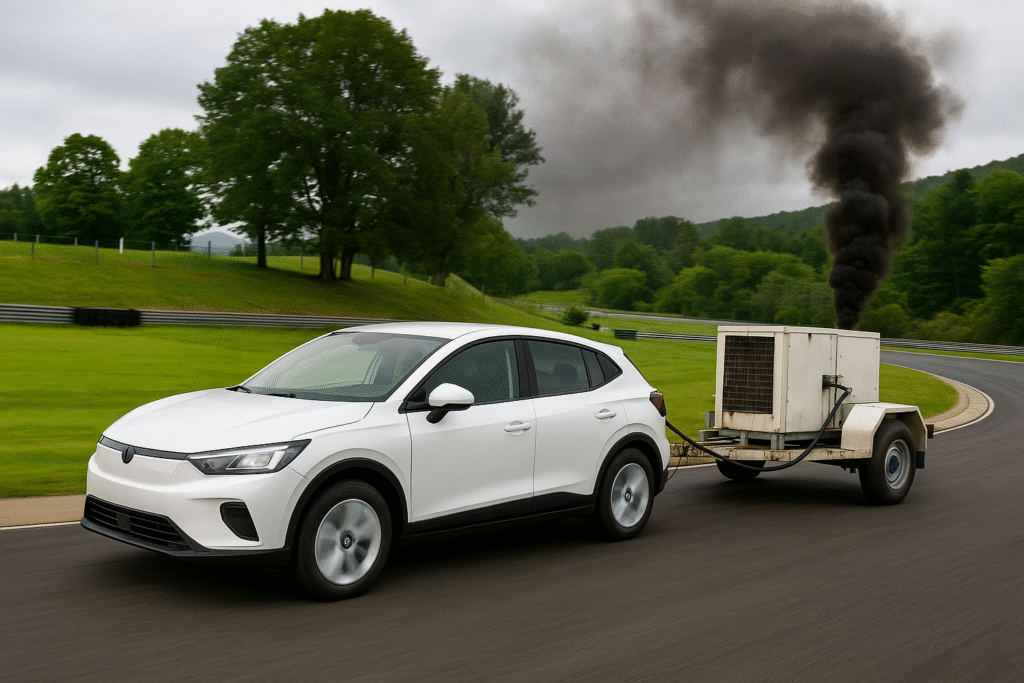
How AI is Making EVs Smarter and Safer
In tandem with advancements in battery technology, the integration of artificial intelligence (AI) has further revolutionized the electric vehicle landscape. AI algorithms are being employed to develop sophisticated driver-assistance systems that improve road safety and enhance user experience. Features such as adaptive cruise control, lane-keeping assistance, and automatic emergency braking are becoming standard in many new models, all contributing to a safer driving environment.
The Connected and Sustainable Future of EVs
The connectivity aspect of electric vehicles is also noteworthy. Manufacturers are arming their EVs with advanced telematics and internet connectivity, allowing for seamless integration with smartphones and other devices. This connectivity facilitates real-time navigation assistance, remote monitoring, and over-the-air software updates that keep vehicles current with the latest advancements. Additionally, many companies are committing to sustainability initiatives, such as eco-friendly manufacturing processes and the sourcing of sustainable materials, reflecting a broader trend toward greener transportation solutions.
Practical Guidance for Embracing Electric Vehicles
Making the switch to an electric vehicle might feel overwhelming at first, but I promise it doesn’t have to be. Once you understand what really matters in EV ownership, the whole process becomes much more manageable – whether you’re completely new to this or already have some experience with electric cars.
The most important thing is finding an EV that actually fits your life. Think about how you drive every day. Do you mostly zip around town running errands, or are you commuting long distances on the highway? How far do you typically drive in a day? And what features matter most to you in a car?
If you live in the city and mainly use your car for short trips, a smaller, nimble EV might be perfect for you. But if you’ve got kids to shuttle around or frequently need cargo space, you’ll probably want something roomier. It’s really about being honest with yourself about how you actually use your vehicle, not how you think you should use it.
The beauty of today’s EV market is that there are options for almost every lifestyle – you just need to match the right one to yours.
Charging Smart: Solutions and Battery Best Practices
Charging solutions play a vital role in the electric vehicle experience. Home charging stations provide the convenience of refueling overnight, making it an optimal choice for many owners. It is essential to evaluate the electrical capacity of your home and choose a charging level that meets your requirements. Alternatively, public charging infrastructure is expanding, with fast chargers available in various locations, allowing for convenient recharge during long-distance travel. Being aware of these options can alleviate concerns regarding range anxiety.
To enhance battery life and efficiency, adopting specific usage strategies is advisable. Avoiding extreme temperatures and maintaining moderate charge levels can prolong battery health. Many EVs also come equipped with intelligent systems that optimize energy consumption, making it easier for drivers to manage efficiency while on the road.
- Fast 48A EVSE Tesla Charger Level 2: Tesla wall charger provides up to 46 mph with 11.5 kW power. EV chargers for home l…
- Smart Wi-Fi & App Control: Control charging from anywhere, customize 6–48A current, plan off-peak sessions and update fi…
- Level 2 Tesla Charger Wall Mount: This electric car charger works with SAE J3400 EVs (Hyundai IONIQ 5/6). For other EV/P…
Money-Saving Tips and Myth-Busting for Future EV Owners
As a potential buyer, you should definitely inform yourself about government incentives aimed at promoting electric mobility. Various rebates and tax credits may be available at local or national levels, making electric vehicle acquisition more accessible. These financial benefits can significantly reduce your upfront costs, sometimes offering savings of several thousand dollars depending on your location and the specific EV model you choose.
Additionally, debunking common misconceptions about EV ownership, such as limited range or high maintenance costs, can further facilitate informed decision-making and encourage new users to embrace electric vehicles. Many people still believe that electric cars can’t handle long trips, but modern EVs routinely offer 250-400+ mile ranges. The maintenance myth is equally outdated – EVs actually require less upkeep since they have fewer moving parts, no oil changes, and regenerative braking that extends brake pad life.
Taking time to research both the financial incentives and separate fact from fiction will help you make a confident, well-informed decision about joining the electric vehicle revolution.
